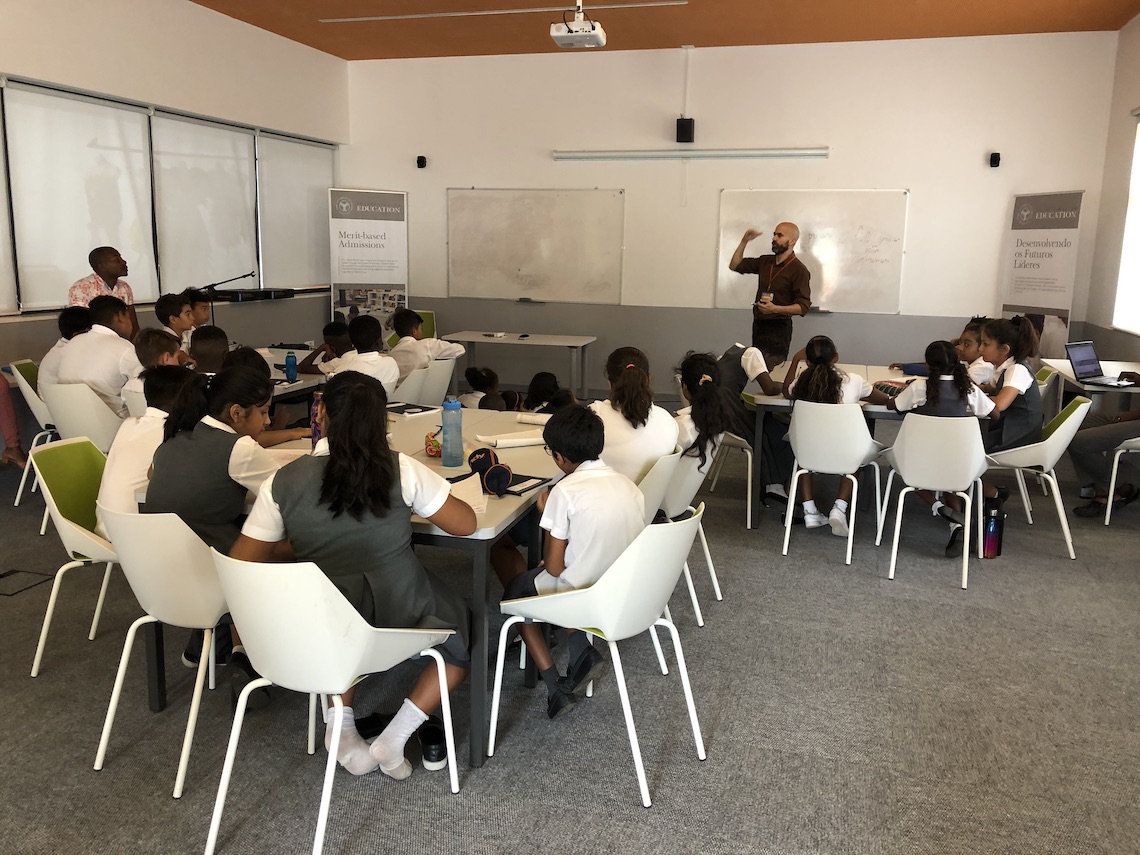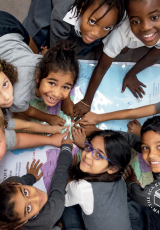Encouraging environmental education at an early age
On 16 March, 2020, Mozambican environmental activist and lawyer, Carlos Serra Junior, visited the Aga Khan Academy Maputo to talk about his work on water pollution. He met with students from Grade 3 - 5 and discussed issues such as environmental education and water pollution in Mozambique.
Along with him, his team of volunteers have been cleaning the beach and waterways off the coast of Mozambique. Known for his initiatives such as ‘World Clean Up Day’, Carlos spoke of the need to raise awareness about the use of unnecessary and single-use plastics in the country.
In an attempt to shed light on the extent of pollution, Carlos shared with the students the kind of things he and his volunteers find during their clean-ups. Everyday items like balloons, lollipop sticks, peanut bags, grocery plastic bags, clothes and toothbrushes are among the most common items they find while working on the coastline.
Having worked on 10 urban and 10 non-urban beaches, enabled his team to make a comparative study and get a more thorough understanding of the population’s waste habits. A noteworthy finding was that urban beaches tend to accumulate more waste than non-urban beaches.
When asked by students what his major goal is, Carlos explained that he has taken on the goal of working towards a complete ban on plastic. He pointed out that environmentalists and policy makers have managed to bring about this change in countries like Kenya and Rwanda and now the time has come for Mozambique too.
Prior to his departure, he addressed the serious need for environmental education in Mozambique and pointed out the plight of volunteers who work selflessly without pay. He urged the students to “rethink” about their waste habits and spread his slogan of “Lixo no chão. Não” (No to rubbish in the ground).
Commenting on Carlos Serra Junior’s session, teacher Maria Atalia shared that a number of the issues raised by Carlos coincide with topics that are being raised in her classes. “Our students are discussing issues of irresponsible production and consumption, and they can organise themselves to impact environmental policy. Being a lecturer himself, Carlos was successful in stressing the importance of environmental education even at the level of the Primary Years Programme,” she shared.





